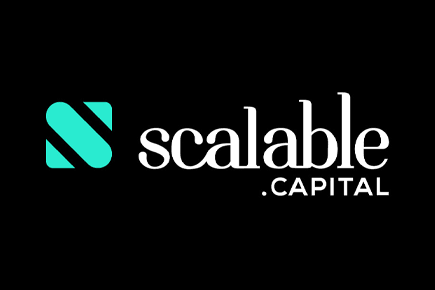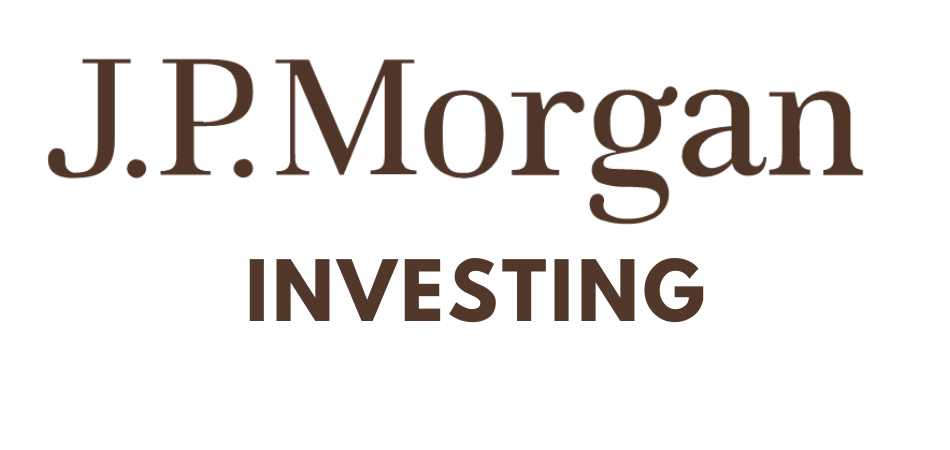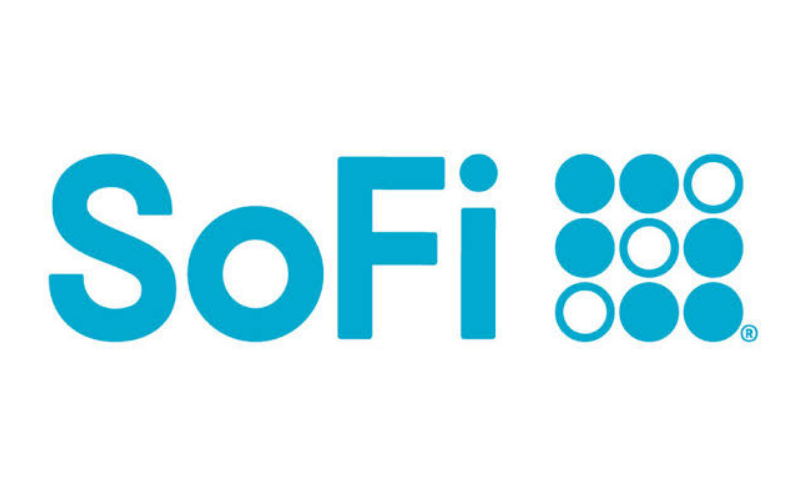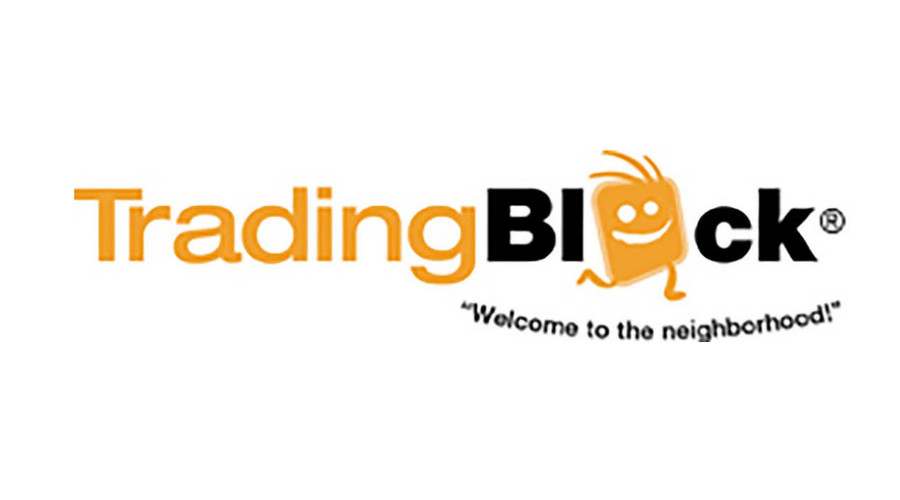Investors often get confused about what brokerage company should choose. In this article, we will be comparing the two most popular online brokerages, Fidelity and eTrade, to see which one comes out on top.

Both Fidelity and eTrade offer a wide range of investment options, from stocks and ETFs to options and mutual funds. They both have a large customer base and provide various account types, including individual and joint accounts, retirement accounts, and trusts.
So, which one is better? Let's take a closer look at Fidelity vs eTrade comparison.
It's going to be an unbiased comparison. AtoZ Markets is in no way responsible for any information given by the writer.
About Fidelity

image credit: Fidelity
Fidelity is one of the largest investment companies. And they offer a massive range of products and services, from mutual funds and stocks to retirement planning and estate advice.
It started its journey back in 1946. And it has more than $2 trillion in assets under management and serves more than 26 million customers in over 140 countries.
About Etrade

image credit: eTrade
eTrade is a financial services company that provides online trading services to individual investors and traders. The company was founded in 1982 and is headquartered in New York City. eTrade offers a wide range of products and services, including online trading, investment advice, retirement planning, and more.
The company provides service to more than 4 million users and comes with many trading options. Etrade also offers a wide range of research and educational tools to help customers make informed investment decisions. They are also known for their excellent customer service and top quality guidance.
Fidelity vs eTrade Comparison

Read Our Fidelity vs Betterment Comparison
Fidelity vs eTrade: Trading Experience
Fidelity is known for its user-friendly platform and its wide selection of investment options. On the other hand, eTrade is known for its low commissions and its wide range of products. So, which one is better?
Desktop Trading Platform

Both offer comprehensive tools and features, as well as a user-friendly platform. So, which one is the best?
Fidelity offers a traditional trading platform, which is ideal for active traders. And it has various features, including market data, order entry, real-time quotes, and charting. Also, you can tailor it to your specific needs.
eTrade's desktop platform is also popular with active traders. It offers a wide range of features, including market data, order entry, real-time quotes, charting, and more. It's also customizable, so you can make it as you desire.
Both platforms are excellent choices for active traders. However, Fidelity is the better option if you're looking for a more traditional trading experience. eTrade is a better platform for its customizable and flexibility.
Mobile Trading Apps

Both platforms offer comprehensive functionality, advanced charting capabilities, and a wealth of research and news resources. Yet, some differences can impact your decision.
First and foremost, Fidelity's mobile app is geared towards more active traders, while eTrade's app is more suited for investors who want to manage their portfolios on the go. This is evident in the amount of functionality each app provides. For example, Fidelity offers real-time streaming quotes, order status tracking, and the ability to place trades directly from the app. On the other hand, eTrade offers a more limited set of features, such as the ability to view account balances and transaction history and place trades over the phone.
Also, both platforms differ in charting capability. Fidelity's app provides users with a wide range of technical indicators and charting tools, while eTrade's app offers a more limited set of features. Sometimes it can be a major drawback for investors who rely on technical analysis.
Finally, Fidelity and eTrade's mobile apps offer different levels of news and research resources. Fidelity's app offers a wide range of news and research sources, including Reuters, Morningstar, and The Wall Street Journal. On the other hand, eTrade's app offers a more limited set of resources, which may not be sufficient for investors who want to stay up-to-date on the latest market news.
When choosing a mobile trading experience, Fidelity and eTrade are both excellent options.
eTrade vs Fidelity: Usability
In terms of usability, Fidelity and eTrade are neck and neck. However, both platforms are easy to navigate, with user-friendly menus and clear displays. At the same time, there are some minor differences in usability.
Fidelity's website is slightly more streamlined and modern-looking than eTrade's. So, if you prefer a sleek, minimalist interface, Fidelity may be a better choice for you. But, eTrade will give you a more traditional and classic look.
Another difference between the two platforms is that Fidelity offers a wider range of investment options. This may be important to you if you want to invest in specific types of assets or funds not available on eTrade.
Finally, Fidelity's customer service is slightly better than eTrade's. As a result, Fidelity may be a better choice if you need help with your account or have questions about your investments.
Overall, both platforms are easy to use and provide an excellent user experience. However, if you are looking for a sleek, modern interface, Fidelity may be a better choice, while eTrade may be better if you prefer a more traditional look and feel. Fidelity's customer service is also considered to be slightly better than eTrade.
eTrade vs Fidelity: Fees
The fee has a vital part while choosing a trading platform. Sometimes having an excellent user experience and multiple investing options is not enough while fees are high. Since you are here to make money, not lose them, you must look deep into the fees.
Trading Fees
Fidelity and eTrade offer a comparable experience when it comes to trading fees. Both brokers charge $4.95 per trade, though Fidelity does offer a limited number of free trades per month for active traders. eTrade also offers a $0.50 per contract fee for options trades.
Where Fidelity shines is its overall investment selection. The broker has over 16,000 mutual funds available, compared to just over 3,000 at eTrade. Fidelity also offers commission-free ETFs and no-fee IRAs.
Overall, Fidelity is the better choice for investors looking for a comprehensive investment selection, while eTrade is better for active traders looking for lower fees.
Trading Commission
To start, let's take a look at the trading commissions. Fidelity charges $4.95 per trade, while eTrade charges $6.95. This may not seem like a lot, but it can add up over time. So if you trade stocks regularly, Fidelity would be the cheaper option.
Inactivity Fees
One key difference is that Fidelity does not charge an inactivity fee, while eTrade charges a $10 per month fee for accounts that have not made a trade in the past 12 months. So if you're not planning to make any trades, Fidelity is the better option.
However, if you're planning to make a few trades each month, eTrade is likely to be cheaper since its commissions are lower than Fidelity.
Non-Trading/Other Fees
Fidelity has a $2,500 minimum, while eTrade has a $0 minimum. This means that you can open an account with Fidelity with less money, and you can start trading right away.
Fidelity vs eTrade: Investment Options
eTrade is a discount broker, and it has many investment options, including stocks, bonds, and mutual funds. Also, it offers various retirement plans, including IRAs and 401(k)s. eTrade also offers several educational resources to help investors learn more about investing.
On the other hand, Fidelity is a full-service broker, and it has various investment options, including stocks, bonds, and mutual funds. Fidelity also offers many retirement planning options, including IRAs and 401(k)s. Fidelity also offers many educational resources to help investors learn more about investing.
When it comes to investment options, eTrade and Fidelity both offer many options for investors. The key difference is that eTrade is a discount broker, while Fidelity is a full-service broker. In addition, both brokers offer several educational resources to help investors learn more about investing.
None of them offer Forex trading service.
Fidelity vs eTrade: Account Types
The two most common account types are individual and joint accounts. An individual account is owned by one person, while two or more people own a joint account.
Another common account type is the retirement account. A retirement account is a special account designed for saving for retirement. The most common retirement accounts are 401(k) accounts and IRA accounts.
Fidelity account types
- IRA accounts
- 401(k) account
- Roth IRA accounts
- SEP IRA accounts
- SIMPLE IRA accounts
- Individual accounts
- Joint accounts
eTrade Account Types
- Brokerage accounts
- Retirement accounts
- SEP IRA accounts
- Managed Portfolios accounts
- Small Business Retirement accounts
It is important to understand the different types of accounts offered and choose the account best suited for your needs.
eTrade vs Fidelity: Security

Both eTrade and Fidelity are highly reputable and reliable companies. However, eTrade is known to be a bit laxer with its security measures, which could leave your account vulnerable to attack. On the other hand, Fidelity takes security seriously and employs several measures to protect your information and funds.
For example, Fidelity requires two-factor authentication for all account holders, which means that you'll need to provide two pieces of information (e.g., your username and password, plus a code sent to your phone) to log in to your account. Unfortunately, eTrade does not offer two-factor authentication to all customers.
Fidelity also has several other security features, such as a fraud monitoring system that tracks your account activity for any suspicious or unauthorized behaviour and a "watch list" that allows you to keep an eye on specific investments or stocks. eTrade also offers a fraud monitoring system, but it's not as robust as Fidelity.
Overall, Fidelity seems better at security. If security is a top priority for you, then Fidelity is the clear winner.
eTrade vs Fidelity: Regulations

Fidelity is regulated by the Securities and Exchange Commission (SEC), Financial Conduct Authority (FCA), FINRA (FInancial Industry Regulatory), PRA (Prudential Regulation Authority). And, that makes it one of the most trusted brokerages in the world.
On the other hand, eTrade is regulated by the SEC and FINRA. Although this is enough for protecting your money, Fidelity is a bit better in the regulation.
eTrade vs Fidelity: Research and Tools
Let's start with eTrade. One of the standout features of their research tools is the eTrade Pro platform. This platform offers real-time streaming quotes, advanced charting capabilities, and access to a wide range of research reports.
Fidelity has various research tools. Their research offerings include analyst reports, Morningstar ratings, and independent research from third-party providers. They also offer a wide range of trading platforms, including the Fidelity Active Trader Pro platform, which offers real-time streaming quotes, advanced charting capabilities, and access to many research reports.
So, which broker offers the best research and trading tools? In my opinion, both brokers offer excellent research and trading tools. However, Fidelity's research offerings are a little bit more comprehensive than eTrade's. Additionally, Fidelity's trading platforms are a little bit more user-friendly than Etrade's.
Fidelity vs eTrade: Customer Support

Fidelity's customer service is available 24/7, while eTrade's is available from 8 am to 8 pm ET on weekdays. Fidelity also has more than 500 physical branches, while eTrade has only 30.
Fidelity's customer service is more personal. Representatives can chat online, over the phone, or in person. They are also knowledgeable about various products and can provide tailored advice.
eTrade's customer service is more automated. Representatives are available to chat online or over the phone, but they are not as knowledgeable about a wide range of products. They can provide general advice but may not be able to help with specific questions.
Overall, Fidelity's customer service is more personal and tailored, while eTrade's customer service is more automated and general.
Is Fidelity better than eTrade?

It depends on individual preferences and needs. However, some key factors to consider when deciding between Fidelity and eTrade include trading costs, account minimums, research and tools, and customer service.
Fidelity offers commission-free trading for certain stocks and ETFs, saving investors money on trading costs. However, eTrade does not currently offer commission-free trading.
Fidelity also has a lower account minimum than eTrade. For example, eTrade requires a minimum deposit of $500 to open an account, while Fidelity has no account minimum.
Fidelity offers more research and tools than eTrade. For example, Fidelity has many research reports, data feeds, and tools, while eTrade offers a more limited selection.
Finally, Fidelity offers better customer service than eTrade. eTrade has a reputation for providing poor customer service, while Fidelity is known for its high-quality customer service.
Overall, Fidelity and eTrade are both good options for investors. However, Fidelity may be a better choice for investors looking for commission-free trading, a lower account minimum, and more research and tools.
Conclusion
Between eTrade and Fidelity which one you should choose is up to you. But, here we have given the aspect that will help you make your decision. Fidelity is a popular choice for investors who want a lot of control over their portfolios. The platform offers a wide variety of investment options and in-depth research and analysis. Fidelity also has a well-developed mobile app, which makes it easy to trade on the go.
eTrade is a good choice for investors who want a lot of conveniences. The platform offers a wide variety of investment options and in-depth research and analysis. eTrade also has a well-developed mobile app, which makes it easy to trade on the go.
Fidelity or eTrade, whatever you choose, make sure you know the trading well to make a good profit from it.
Should you trade online on your own at all?
Before you start trading online, you'll want to read this.
Our in-house trading expert Dr Yury Safronau, PhD in Economic Sciences, gives you daily his best forex, stocks, metals, and cryptocurrencies to buy and sell signals right now.
His trading strategies which are based on non-linear dynamic models have achieved more than 65 000 pips of profits since 2015. And right now there are some very strong buy and sell signals across several markets you don't want to miss.
Want to see which ones?


















